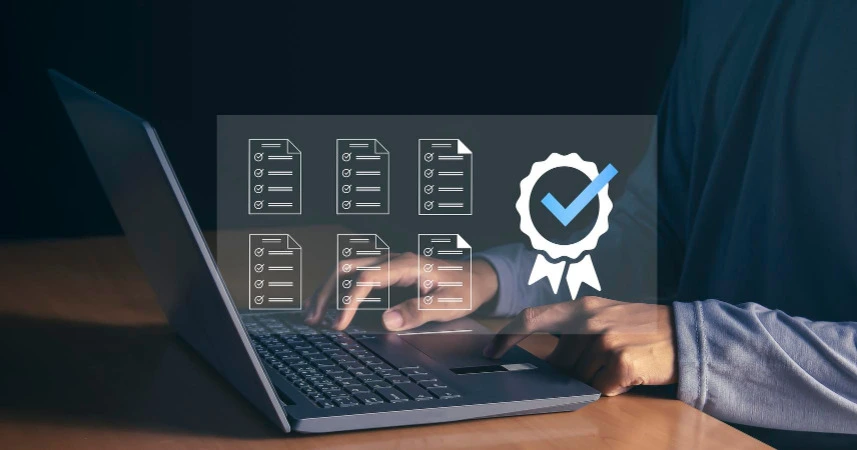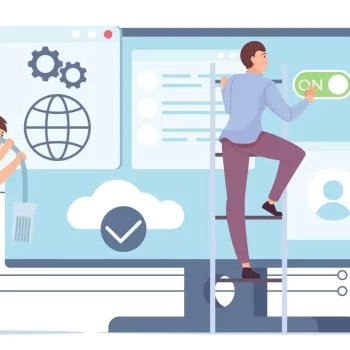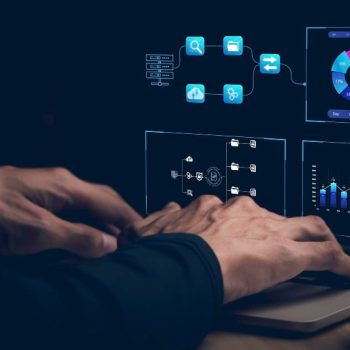Companies entrust service providers with sensitive data like customer records, financial details, and intellectual property, which demand rigorous security and reliability. SOC 2 certification (Service Organization Control 2), developed by the American Institute of Certified Public Accountants (AICPA), is a globally recognized standard that validates an organization’s commitment to data protection and operational excellence.
For SaaS, fintech, healthcare, and IT service providers, SOC 2 helps build customer confidence, accelerates sales, and provides a competitive edge. This blog explores the critical role of SOC 2, starting with the risks of operating without it and demonstrating its value through real-world use cases.
Related blog: Cybersecurity in the Next Decade: Challenges and Opportunities for MSPs
The Risks of Operating Without SOC 2 Certification
Imagine a SaaS company pitching to a Fortune 500 client. The demo is flawless and the pricing is perfectly aligned. However, when the client’s procurement team requests a SOC 2 report, the company admits it does not have one. The client then demands a 60-page security questionnaire, diverting the team’s resources to compile the responses. Weeks later, the client’s compliance team identifies the lack of a SOC 2 report as a deal breaker, resulting in the contract being awarded to a competitor who has one.
This scenario is increasingly common. A 2025 Vanta survey found that 85% of enterprise buyers require SOC 2 reports before signing contracts, with 70% of deals delayed or lost due to non-compliance. Without SOC 2, companies face significant challenges, from lost opportunities to reputational damage.
What is SOC 2?
SOC 2 is a cybersecurity framework that assesses an organization’s controls for managing customer data based on five Trust Services Criteria (TSC):
- Security: Protection against unauthorized access
- Availability: System reliability and uptime
- Processing Integrity: Accurate and complete data processing
- Confidentiality: Safeguarding sensitive information
- Privacy: Proper handling of personal data
In contrast to rigid standards such as PCI DSS, SOC 2 offers flexibility. It enables businesses to customize controls to fit their operations while meeting industry benchmarks.
Types of SOC 2 Reports
SOC 2 certification comes in two forms:
- Type I: Assesses the design of controls at a specific point in time.
- Type II: Evaluates the operational effectiveness of controls over a period (typically 3–12 months), offering greater assurance.
An independent audit by a certified public accountant (CPA) results in a SOC 2 report, validating an organization’s security and operational rigor.
Why is SOC 2 critical for Business Clients?
SOC 2 certification is a powerful signal of trust and reliability for business clients. Here are the key reasons it matters:

1. Data Security: Through proprietary algorithms, clients handle sensitive data, including personally identifiable information (PII). A single breach can cost $9.48 million on average in the U.S. (IBM Security, 2025). SOC 2 ensures robust controls—encryption, access management, and incident response—to protect data, giving clients confidence.
2. Streamlined Vendor Onboarding: Enterprises subject vendors to rigorous security assessments. A SOC 2 report simplifies this process by providing a comprehensive, audited overview of controls, bypassing up to 80% of repetitive security questions and cutting onboarding time by weeks.
3. Competitive Advantage: SOC 2 distinguishes companies in competitive business markets. A 2025 X post reported that SOC 2-compliant SaaS providers experienced a 28% increase in customer trust and a 12% decrease in churn, enhancing retention and market share.
4. Alignment with Other Standards: SOC 2’s requirements overlap with ISO 27001, HIPAA, and GDPR, which streamlines compliance across multiple frameworks. For example, SOC 2’s privacy controls align with GDPR, facilitating global regulatory adherence.
5. Operational Efficiency: SOC 2 audits identify inefficiencies, enabling businesses to optimize workflows, strengthen incident response, and improve service delivery. OneLogin notes that compliant companies often see internal efficiency gains, freeing resources for innovation.
Real-World Business Use Cases: SOC 2 in Action
SOC 2’s value shines in business scenarios:
Use Case 1: SaaS Provider Securing Enterprise Contracts
A cloud-based HR platform focuses on large enterprises. During negotiations with a global retailer, the client requests a SOC 2 Type II report to confirm the security of employee data. The provider’s report, which outlines encryption and uptime controls, meets the client’s requirements, avoiding a lengthy review and securing a $2 million contract. Without the SOC 2 report, the deal would have stalled.
Use Case 2: Fintech Startup Partnering with Banks
A fintech startup that offers payment processing is seeking partnerships with banks. Regulated under GLBA, banks require SOC 2 compliance. The startup’s Type II report, which highlights monitoring and incident response, reassures banks and results in $1.5 million in new contracts. Competitors that are non-compliant are excluded.
The High Cost of Ignoring SOC 2
Skipping SOC 2 certification can cripple business growth. Here is an in-depth look at the consequences, supported by recent data:
- Market Exclusion: Many business clients impose strict compliance filters. Vendors lacking SOC 2 certification are often eliminated during procurement phases, resulting in the loss of high-value opportunities deals.
- Reputational Harm: Security breaches are increasing, and the lack of compliance undermines trust. Non-compliant companies often endure public scrutiny and long-term loss of customers.
- Financial Setbacks: Recovering from data breaches by third parties is expensive regarding direct costs and regulatory penalties. The financial repercussions can severely impact even well-funded organizations.
- Operational Delays: Companies without SOC 2 spend much more time on security questionnaires and due diligence processes, resulting in longer sales cycles and higher labor costs.
- Competitive Disadvantage: Enterprises increasingly prefer vendors who are already SOC 2 certified. Losing out to compliant competitors is a growing reality in today’s security-conscious market.
- Growth Barriers: Without SOC 2, startups often struggle to gain investor trust or scale beyond Series A. Clients and investors alike are shifting toward businesses with strong security postures.
Why SOC 2 Compliance Matters for Your Business
1. Market Access: Fulfill Compliance Requirements & Secure Contracts
SOC 2 compliance is a green light for doing business with large enterprises, especially in the finance, healthcare, and tech sectors. These organizations often require proof of robust data security practices before signing contracts. By being SOC 2 compliant, your business removes a key barrier to entry and stands out in RFPs and security reviews.
2. Customer Loyalty: Strengthen Trust & Reduce Churn
Trust is a significant factor in customer retention. When clients see that you are SOC 2 certified, it reassures them that their data is safe and that you are committed to protecting it. This credibility goes a long way in building long-term relationships, customer satisfaction, and lowering the chances of Churn.
3. Efficiency: Streamline Operations with Standardized Processes
SOC 2 requires businesses to implement structured policies and controls. This helps create more consistent, efficient workflows, especially around data handling, access control, and risk management. By aligning with standards like ISO 27001, your operations become more predictable and less prone to errors or bottlenecks.
4. Cost Savings: Reduce Risk & Lower Compliance Costs
Preventing a breach is far less expensive than recovering from one. SOC 2 compliance helps identify and fix vulnerabilities early, reducing the risk of incidents. It also reduces the need for repeated manual audits and custom security questionnaires, saving time and reducing costs across your IT and legal teams.
Related Blog: The Importance of Reporting in Asset Management
Conclusion: SOC 2 as a Strategic Imperative
SOC 2 certification is crucial for building trust, accelerating sales, and providing a competitive advantage in security-conscious markets. The cost of neglecting SOC 2 significantly surpasses the investment required. A SOC 2 report serves as a powerful asset for sales teams to address client concerns, close deals more swiftly, and distinguish themselves. As breaches continue to rise (with a 42% increase in Q3 2024), SOC 2 remains vital for growth and trust.



















